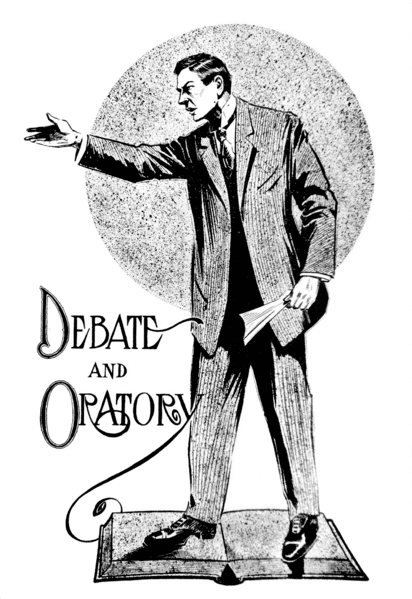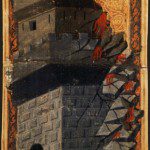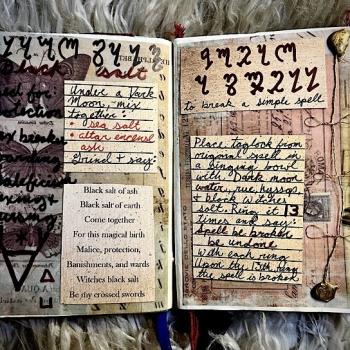The discussion over the “Genetic women only” ritual by Z Budapest at PantheaCon is in full swing across the blogosphere, discussion groups, and in face to face conversations. Although I hesitate jumping into what is clearly an emotional and highly charged discussion, I’m hopeful that these observations may help move the discussion in a more productive direction.
There are several different positions people are articulating that range from very narrow in focus to much more global in nature. I have read very clear statements of these positions followed immediately by comments that say they either disagree or agree with the statement but talk about an entirely different issue altogether. It appears we are trying to have one conversation about a series of related topics and the upshot is we are all talking past one another. I’ll list the various topics from more narrow to more global.
Topic 1: Are transgender women women? (Same with transgender men) This is the most emotionally charged topic in relation to the wider discussions. This also seems to have the most consensus as most Pagan, Heathens, and polytheists have said transgender women are women. There is a minority who disagree. There is no survey or poll to back this up, just what can be seen from comments.
Topic 2: Should persons with views such as the ones Z Budapest is said to hold be invited to lead rituals or workshops at conventions or festivals? Similar topic – should PantheaCon have invited Z Budapest after the comments she allegedly made after last year’s PantheaCon? There are many Pagan elders who hold controversial views on topics. Some are, or may appear to be racist, bigoted, illegal, etc. Should an elder who advocates illegal drug use for spiritual work be invited to teach a workshop?
T Thorn Coyle states, “What I feel is “in error” is not the holding of a Dianic ritual for cis-women only. It is not that this ritual occurred at Pantheacon. It was that — after the events, pain, and discussions of the last year, with so many of us doing our level best to learn from one another — we had this ritual led by a public figure who has made hateful comments which she had not retracted, or even apologized for. This statement actually covers Topic 2 and 3.
Topic 3: Can there be CisGender only rituals at Cons and festivals? David Salisbury calls for a boycott until PatheaCon adopts an inclusive policy that reads, “…thatacknowledges transgender individuals as the gender they identify as. This includes forbidding ritual that is cisgender-only.”
Editor’s Note: David Salisbury has recalled the boycott. You can read more about that on his blog.
Lupa says, “I have absolutely no problem with cis-women-only rituals. What I have a problem with is when a ritual that is purported to be for “all women” or, in the case of Z’s ritual, “the beauty and grace of the feminine form in all of her infinite variety”, is limited to cis women only. This exclusion of trans women from rituals stated to be for ALL women invalidates trans women’s identities AS WOMEN.”
Topic 4: Should all rituals and workshops at conferences and be open to all attendees? This idea is brought up mostly in the comments sections of blogs, but it’s one that seem to resonate with some people. Mrs. B summed it up with this comment, “… people who pay the same price as the next person to go to an event, should (in my opinion) be able to go to any event that’s included in that ticket price.”
LezlieKinyon responds that, “I’ve attended a lot of conferences over the past 2 (and, some) decades from systems & cybernetics to Pagan studies to the annual American Popular Culture Conference, the International Association for the Study of Dreams to the American Psychological Association to the various Pagan, Interfaith, F/SF, arts, and writers conferences. Every. Single. One has
“closed ” sessions where in not everyone attending is invited or welcome. … For a lot of reasons stretching from the esoteric to the matters of age or gender, philosophy, and even profession.”
Fritterfae writes, “When people seek out spaces that are gender exclusive they are doing so because there is a need for connection to shared experience. And yes, that exclusivity can be hurtful to people who have been discriminated against and belittled for their gender identity. But it doesn’t negate the need for people to want to connect with a subgroup that they feel makes sense to them.”
I would like to add this quote from Peter Dybing, ” The silent protest was intended to call Z to account for her hateful words from last year, something many in the community attempted to do during the year and were met with silence. The statement was made that such speech was not considered valid as part of the debate. Z to her credit got the message and offered an an apology. This issue ends there. A successful effort to keep the needed debate in the community focused on compassionate communication. Those who would bring larger issues to the table and use this opportunity to escalate the situation are risking the ability of the community to now process these important issues. It is time for compassion in this discussion, time for the Trans community to sit and listen with open hearts to the pain of women who have suffered abuse at the hands of men, time for the Dianic community to listen with open hearts to the Trans communities experience of violence and exclusion. I believe all of my sisters have the ability to tap into the energy if the divine and approach these issues with respect, compassion and the intent to heal.”
The conversations taking place in the greater Pagan, Heathen, and polytheist communities have expanded past the more narrowly defined meditative protest at PantheaCon aimed at Z Budapest’s comments and that’s healthy for us to do. We are trying to find out what ethics and norms should be in place when we all gather together, but let’s be clearer about what we are discussing, let’s listen to one another in contemplation, and speak with compassion.


















